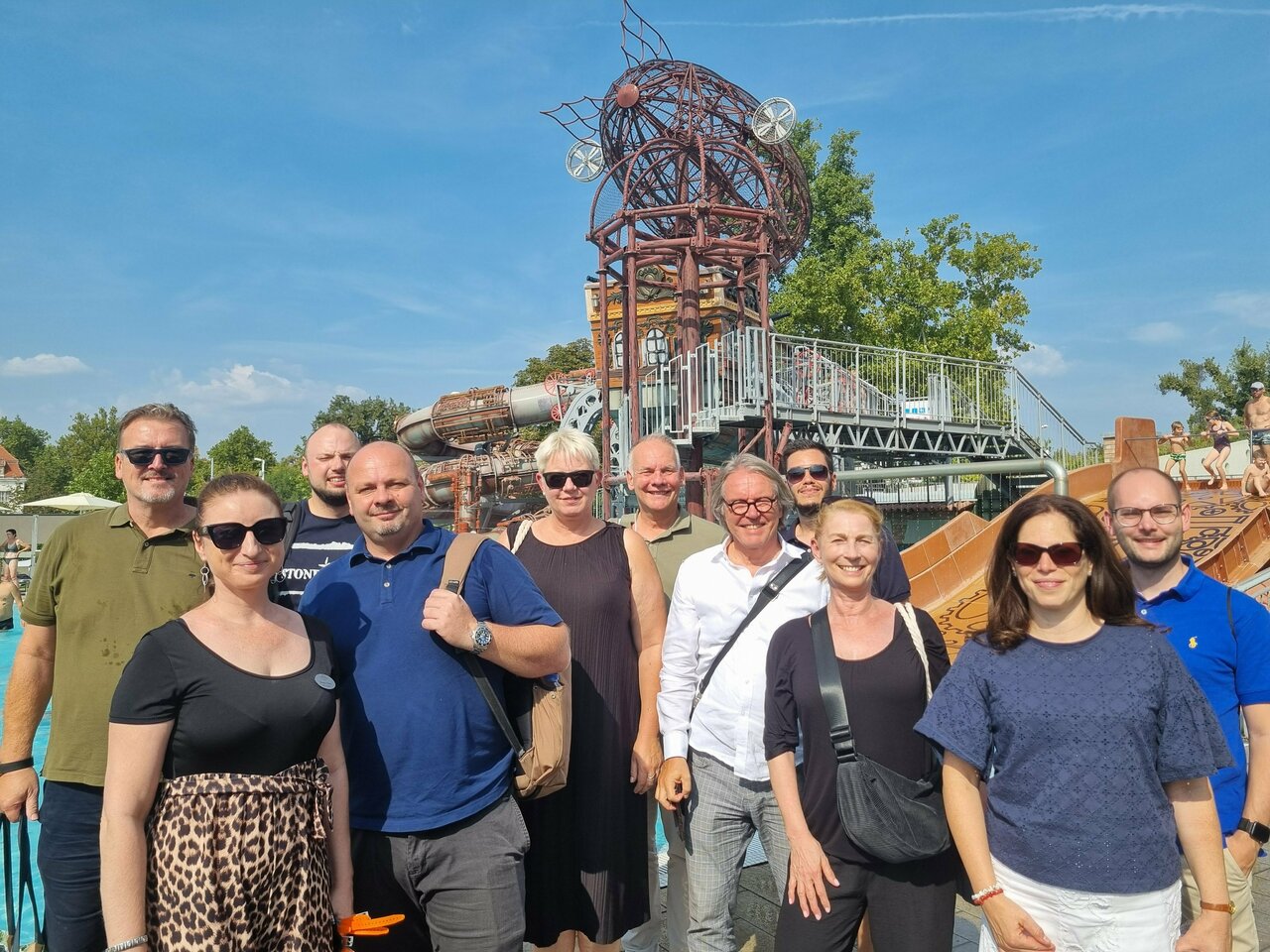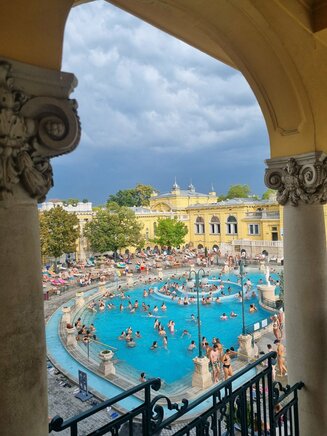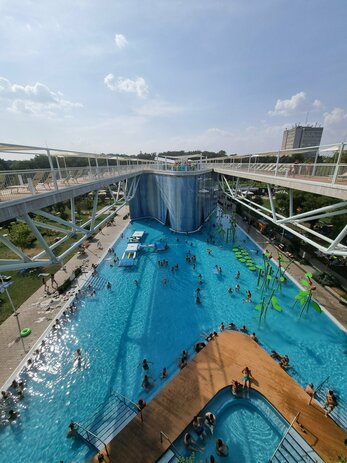EWA Study Trip Hungary: A Spa Country between Tradition & Modernity

The EWA study trip took the participants to the Aquaticum Debrecen, among other places. Photo: Courtesy of EWA
(eap) The participants of the European Waterpark Association’s (EWA) study trip to Hungary, which took place from 27th to 29th August, responded with great enthusiasm to the insight into a fascinating spa landscape in which centuries-old spa culture and innovative new spa concepts face each other. The program was created by the EWA with the support of its supporting member Eleven Kft. from Budapest, which specialises in water slides and attractions for leisure pools.
 Széchenyi Thermal Bath; Photo: Courtesy of EWA
Széchenyi Thermal Bath; Photo: Courtesy of EWA
The programme included a visit to the famous thermal baths of Budapest – the Gellért Bath and the Széchenyi Bath. How the potential of the two most visited thermal baths in the Hungarian capital for international spa and wellness tourism was recognised and how rapidly demand has developed was explained by Szilvia Czinege, Sales & Marketing Director of the Budapest Spa Company. As part of a guided tour, the group was able to explore the Széchenyi Bath, which became famous above all for its large outdoor thermal pools, where the people of Budapest meet all year round to bathe and also to play chess in the pool – photos of chess-playing bathers are iconic.
No less famous is the Gellért Bath, an “Art Nouveau jewel” with an adjoining hotel. There, the participants of the study trip were not only able to take a look at the bathing and wellness area, but also visit the medicinal springs in the catacombs of the bath – a sweat-inducing affair, as the water comes from the rocky subsoil of the nearby Gellért Hill at 48 degrees Celsius. Hungary is richly blessed with thermal water resources. There are 118 natural healing springs in the capital alone, which have been used for drinking and bathing cures for centuries.
 Aquaticum Debrecen; Photo: Courtesy of EWA
Aquaticum Debrecen; Photo: Courtesy of EWA
On the second day of the study trip, the program took participants to Hungary’s second largest city with a population of 200,000 – Debrecen is located in the east near the Romanian border and is famous for its traditional university. Located right next to it is the Debrecen thermal spa, which has been expanded to include a large outdoor water park for families and equipped with attractions from Eleven Kft. Unusual and probably unique in this form, at least in Europe, is the superstructure of the pools with an elongated sun deck that extends the sunbathing areas.
Over dinner in a typical Puszta restaurant, EWA Vice Presidents Jutta Kleiber and Oliver Sternagel thanked their Hungarian hosts for the insights into the traditional and modern aspects of Hungarian bathing culture. The conclusion of the tour group: “We will be back, after all, Budapest’s Rudas Bath from the 16th century and the Hévítz Thermal Lake with its floating bathhouses are further icons of European bathing culture that are well worth a visit.” ■




